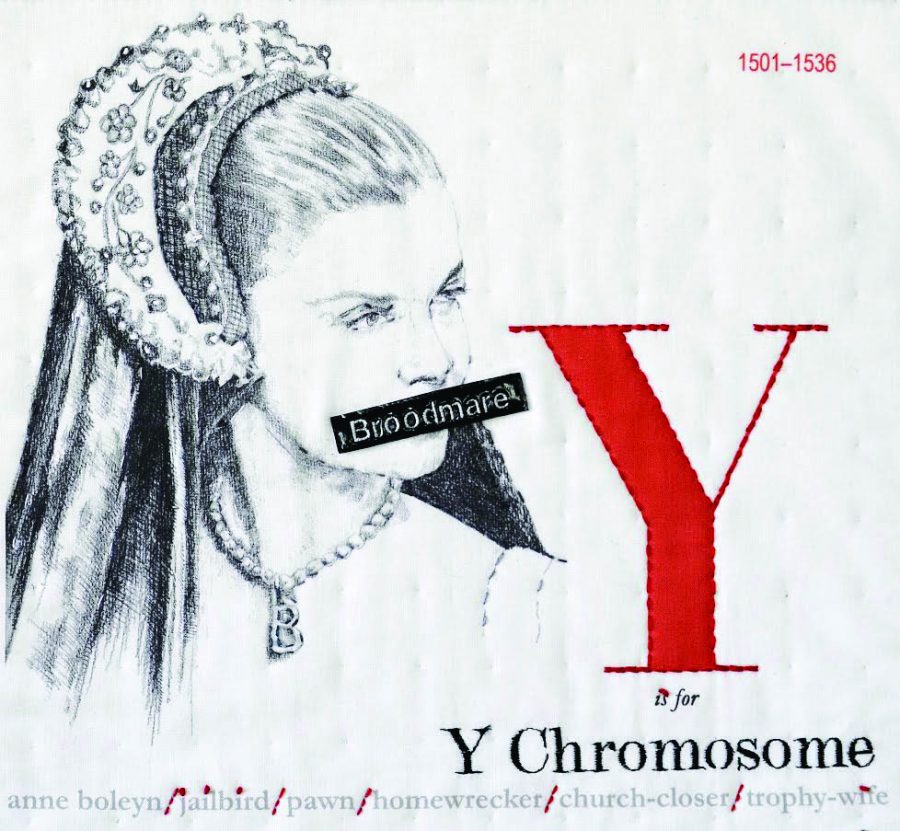By Katie Sittig-Boyd
Staff Writer

On Tuesday, March 24, Carlye Atkinson ’11, BSN, RN, gave a talk on queer sexual education. An OB/GYN nurse at Fenway Health, Atkinson described her “favorite stuff” as “sexual health, OB/GYN, and trans health.”
Fenway Health is a local organization dedicated to the idea that “health care should be a right, not a privilege,” and serves the Fenway neighborhood, the LGBT+ community, and people living with HIV/AIDS, as well as individuals from the broader population.
Atkinson began the presentation by defining how sex is viewed, clinically speaking, describing that sexual acts vary from “deep kissing” to “full penetration,” and that different acts are associated with different sexual risks.
She then gave a thorough overview of sexually transmitted infections (STIs). “I always assume people know more about STIs than they do, so I’m going to take the full, well-rounded approach to this,” Atkinson said, describing the importance of understanding STI risk and prevention.
“Anybody can get an STI,” Atkinson said. “Women who have sex with women, men who have sex with men, men who have sex with women, trans folks, any matchup-you can get an STI.”
Fenway Health offers STI screening; the recommended time period between checks is three months, even for individuals who have not tested positive for any STIs.
STIs affect individuals regardless of sexuality or gender identity, and prevention is important for anyone who is sexually active. These include chlamydia, gonorrhea, trichomoniasis, herpes (HSV 1 and 2), syphilis, HPV, and HIV.
HIV/AIDS has historically had significant impact on the LGBT+ community, since the initial rates not only of infection but also of death were incredibly high. Early HIV infection often has no symptoms, but can be detected by frequent screenings.
Additionally, there are resources for HIV prevention, either pre- or post-exposure. Pre-exposure prophylaxis, or PrEP, can prevent HIV transmission among individuals who have tested positive or who have HIV+ partners.
Post-exposure prophylaxis, or PEP, can be administered within 72 hours of suspected or known exposure to prevent HIV.
Atkinson then gave several guidelines for sexually active queer people, advising that everyone should know their STI status, protect themselves, communicate with their partner or partners, and understand and accept the risks of having sex.
“The thing is, when you start having sex, you have to understand that there are risks involved,” Atkinson said. “It’s generally not a fun conversation to have, but it’s always better to ask first, to talk about it first, before you’re in the moment–because talk about a buzzkill.”
She also advised that these conversations should take place without alcohol involved.
“Do what you can before you go out, so you have protection on hand,” Atkinson said.
Atkinson then discussed sex toy safety, noting that sex toys can spread STIs if not properly cared for. Silicone and other non-porous sex toys are the easiest to clean, which is especially helpful if they are shared, since there is some risk associated with sharing sex toys. Porous sex toys, Atkinson cautioned, should be reserved for personal use only, or covered in a condom before shared use.
Queer health is about more than sexual health, however, and Atkinson touched on several other LGBT+ health issues, including depression, suicide, homelessness, substance abuse, and risk of violence.
“It always comes down to homophobia, internalized homophobia, ignorance, and lack of support system,” Atkinson said. “When you’re feeling like you can’t come out to your family and your friends, you feel like you can’t be yourself.
“If you have queer friends and see them struggling in these ways, sometimes they need a friend to reach out and tell them that they see that struggle, that you can help them out,” Atkinson said.
Atkinson then discussed transgender health with regards to hormone treatment. There are sexual health consequences to receiving hormone replacement therapy (HRT).
For trans individuals receiving testosterone as part of HRT, these risks include uterine cancer and vaginal atrophy, among others. Trans individuals receiving estrogen may experience a decrease in libido, increased risk of type II diabetes, and have a higher likelihood of developing blood clots.
Atkinson also referenced several resources available for queer individuals, including the Fenway Health website (fenwayhealth.org), the Trans Lifeline (translifeline.org), and The Network/La Red (tnlr.org).




















